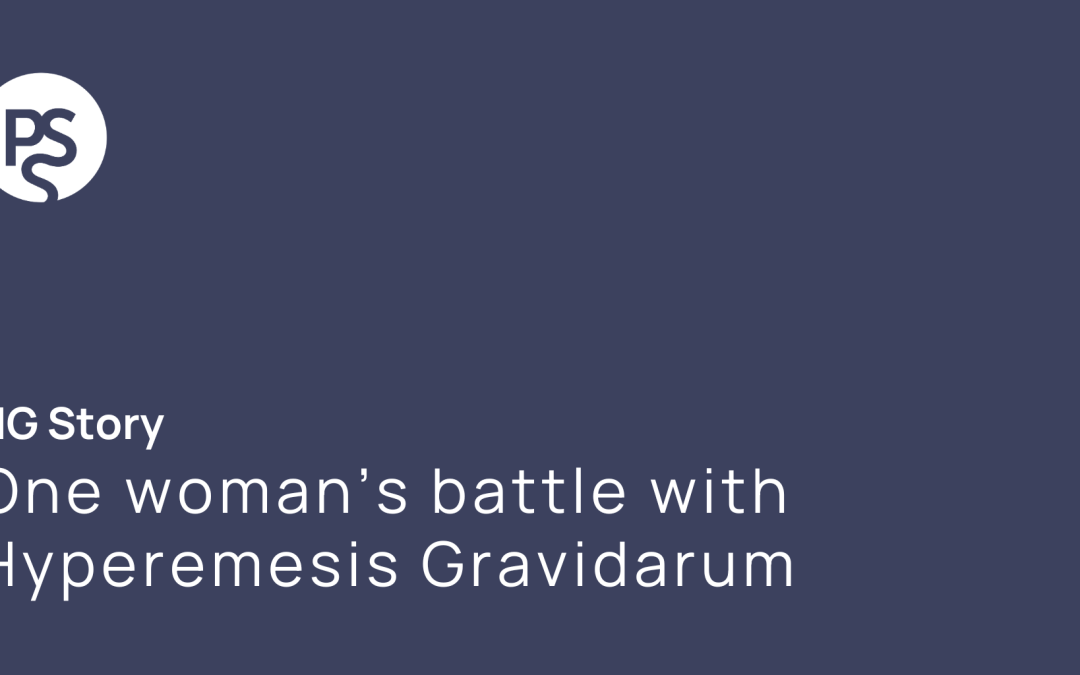“I Felt So Alone”: One Woman’s Battle with Hyperemesis Gravidarum
For one woman, pregnancy became a terrifying and isolating ordeal, made worse by a lack of support and understanding from healthcare professionals. She bravely shares her experience of hyperemesis gravidarum (HG) in the hope that more women will be listened to and given the care they desperately need.
I started having symptoms at around seven weeks of pregnancy. At first, I thought it was normal, but as the days and weeks passed, it quickly became impossible to continue my day-to-day life. I’m a teacher, and sometimes I had to leave my class halfway through a lesson to go and be sick. I tried everything—the usual ginger biscuits, eating before getting out of bed—but nothing helped. Some days, I was sick more than 25 times. I couldn’t get out of bed. Every morning, as soon as I ate or drank anything, I would be sick straight away.
One day, it got so bad that I was vomiting every 15 minutes. My partner was really worried and called 111. At first, they told us to monitor my symptoms, but when things didn’t improve, they said I would need an ambulance—with an eight-hour wait time. We decided to go straight to A&E to ‘save time.’
That’s when the worst experience began. I spent the entire time in the toilets, being sick every 15 minutes. No one helped me. In four hours, the doctors had only seen two people.
When my partner asked how much longer the wait would be, the receptionist said there were still eight people ahead of me. I couldn’t take it anymore. I asked my partner to take me home, and he had to drag me through the car park because I was so weak. It was honestly the worst experience. I felt so alone.
Even though I was clearly dehydrated, no one at A&E prioritised my case, offered me water, or provided any assistance. I thought that being pregnant, I might have been seen as more of an emergency, but I didn’t see anyone. I had to go home and deal with it alone. I felt so traumatised.
When I finally saw my midwife at eight weeks, I told her I was struggling. Her response? “Eat ginger biscuits and eat before getting out of bed.” I tried calling my GP, but they were so busy that it took me three days of phoning first thing in the morning before I could even get a phone appointment to be prescribed anti-sickness medication. I was lying in bed, being sick all day, desperately trying to get through to the doctors, only to be told there were no appointments available. I felt so alone, like no doctor was willing to give me the time to help me.
I suffer from anxiety anyway, and not knowing what HG was made everything worse. I didn’t know what was going on, and I thought something was seriously wrong. I was constantly worried about my baby not getting food, as I couldn’t even keep water down on some days.
The illness left me feeling isolated from my job, my daily life, and even from the healthcare system that was supposed to support me. I couldn’t do my job properly, I couldn’t do anything. Some days I couldn’t even leave my bed. I felt deeply let down by healthcare professionals and isolated from everything.
Eventually, I came across Pregnancy Sickness Support through a midwife I followed on Instagram. It helped me understand what HG was and where to get support. Reading other women’s experiences also helped me feel a lot less alone.
The medication eventually helped, but I remained sick until 17 weeks. I was okay after that—until I went into labour. For 47 hours, I was sick every 30 minutes until I had an emergency c-section. The whole thing was traumatic. If my partner and I decide to have another child, I know I will be anxious. I just think that with more support from professionals, it could have been less traumatic.
As a French person living in the UK, this experience really made me reconsider whether I should return to France, where I know I would have been seen as a priority, being pregnant. I hope that the work charities like Pregnancy Sickness Support are doing will improve healthcare professionals’ knowledge so women get the right support sooner. I also hope women will be listened to and not just told to ‘eat first thing in the morning’ when they are experiencing HG.
At Pregnancy Sickness Support, we hear stories like this far too often. No one experiencing hyperemesis gravidarum should be left feeling ignored, dismissed, or without medical care. The failure to provide urgent treatment, the dismissive advice, and the lack of awareness among healthcare professionals all contributed to making this pregnancy more traumatic than it needed to be.
HG is a severe and potentially life-threatening condition that requires timely medical intervention and compassionate support. We continue to campaign for better education for healthcare professionals so that no woman is left feeling alone in their suffering.
Like this woman, you can always submit your story and remain to be anonymous. You can share your HG Story with us here.

